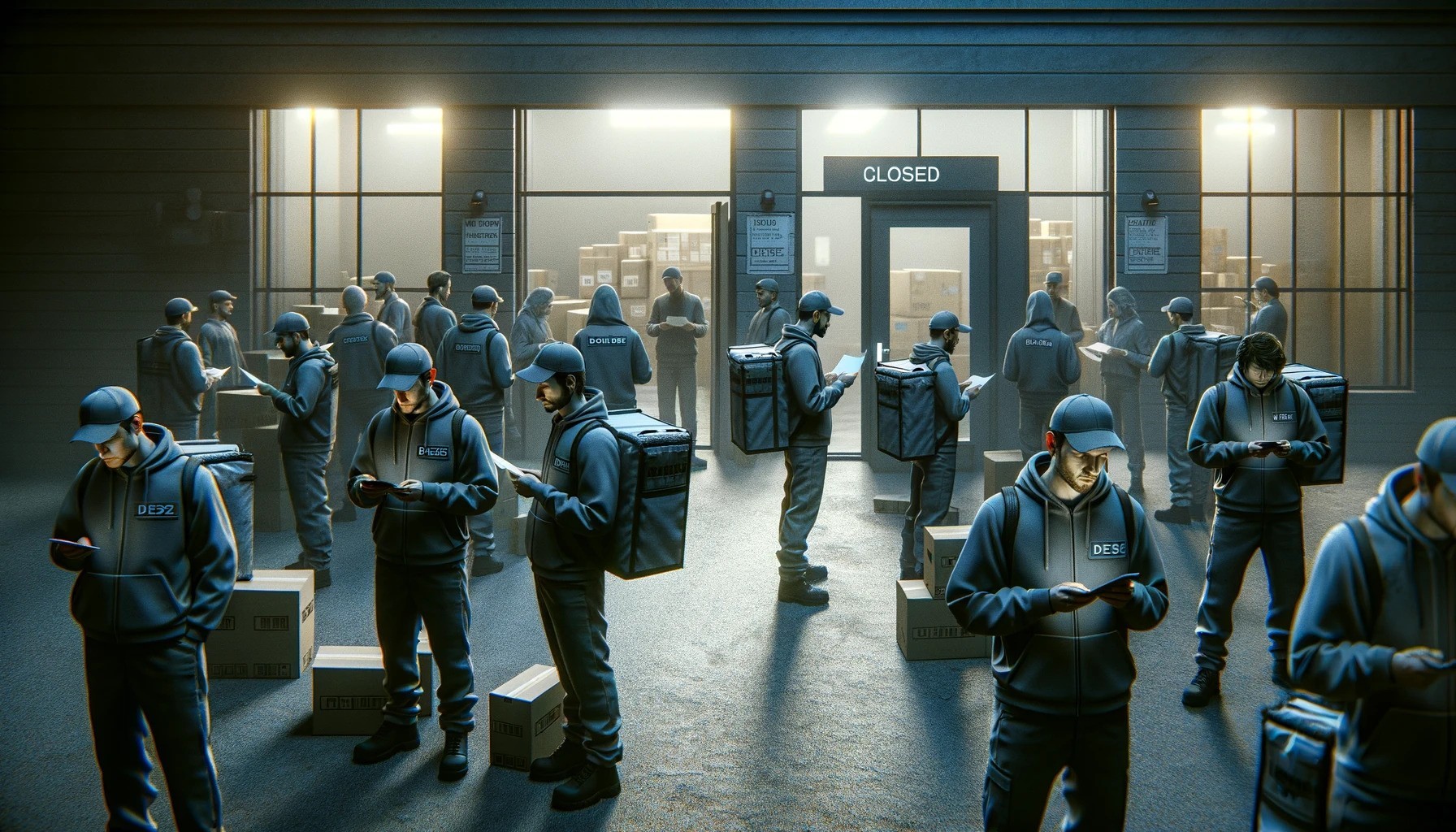(Mike Maharrey, Money Metals News Service) Economics always wins. Ask UPS workers. The shipping giant recently announced plans to lay off 12,000 employees, citing a forecast for weaker shipping demand in 2024. The company said the downsizing will save about $1 billion in employee costs.
According to a report published by Yahoo Finance, the mass layoffs will primarily target management-level and contractor positions. They come after the shipping giant reported a 9.3 percent decline in revenue to $91 billion from $100.3 billion.
The move comes just six months after the Teamsters Union won a “lucrative” deal raising wages for both full and part-time unionized workers. According to UPS, the new deal will raise full-time delivery driver earnings to an average of $170,000 in wages and benefits.
The deal will also add 7,500 union jobs and require the fulfillment of more than 22,000 open positions, allowing more workers to transition from part-time to full-time.
“Teamsters have set a new standard and raised the bar for pay, benefits and working conditions in the package delivery industry. This is the template for how workers should be paid and protected nationwide, and nonunion companies like Amazon better pay attention,” Teamsters General President Sean M. Obrien said in a media statement after the deal was finalized.
This is indeed a fantastic deal – for the workers who get to keep their jobs.
The Real Minimum Wage Is Always Zero.
Minimum wage laws and union pay scales are politically popular. According to the narrative, benevolent politicians and union bosses drive pay higher to force greedy businesses like UPS to pay their workers a decent wage. It sounds great, doesn’t it? It seems like a victory for the little guy.
But minimum wage policies rely on an enduring economic myth — the notion that these laws and union deals only help workers and have no real negative effects. The fallacy inherent in this line of thinking becomes immediately clear if we simply propose a $1,000-per-hour minimum wage. It’s obvious this would be unsustainable and would create all kinds of problems. Nobody could pay that ridiculous wage.
While not that extreme, the UPS union deal effectively raised the imposed minimum wage for union workers. It also significantly limits the company’s flexibility in hiring and firing.
Make no mistake, the company was coerced into offering these raises and wouldn’t have agreed to the big pay increases if it was only considering the economic ramifications. In fact, part of the big decline in business last year was due to worries about the labor unrest. According to Yahoo Finance, “UPS customers, concerned about delays to their shipments, switched to rival carriers like FedEx.”
A wage is nothing more than the price of labor. And labor is subject to the laws of supply and demand. When you raise the price of something, demand falls. That means raising the price to hire somebody will ultimately mean fewer people get hired.
It’s critical to understand that governments and unions can force employers to pay some workers minimum wage. But they can’t force a company to hire you.
In the case of UPS, the union deal requires the company to increase the number of unionized positions. That put the company between a rock and a hard place. With business declining, it almost certainly won’t need that many union workers. But it can’t fire them because of the union.
Something had to give. The company can’t just eat declining revenue forever. So, it cut costs where it could – non-union management and contractor positions.
I suppose that doesn’t matter much to union bosses or UPS drivers with secure jobs. But the 12,000 people soon to be standing in the unemployment line have families to feed too.
This teaches an important economic lesson. You can’t suspend economic laws by government or union edict.
There are always tradeoffs when it comes to economic calculations. That’s because we operate in a world with scarce resources. When you have winners, there are almost always losers.
In the case of UPS, more resources for drivers mean fewer resources for other workers. UPS adjusted by cutting where it could.
As French economist Frédéric Bastiat explained in his famous essay, That Which is Seen, and That Which is Not Seen, good economists not only focus on the obvious “good” outcomes of a policy (raises for union workers), but they also consider possible negative unseen consequences (layoffs).
Unfortunately, most politicians, union officials, and people in general are not good economists.

